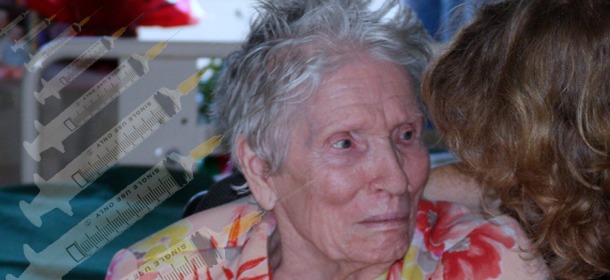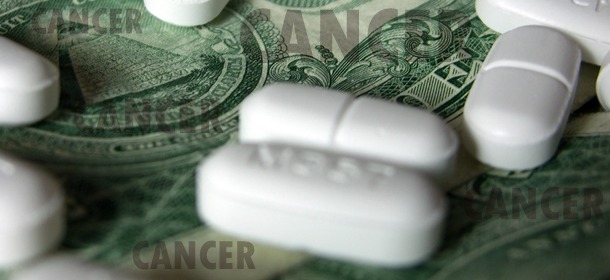Conventional Med
EU Says Bottled Water Doesn’t Treat Dehydration: The Scientification of Drinking Water
No longer can you simply take a drink of water. Now, government agencies are interfering with even that simple act. Do we really need a government agency telling us how much water to drink? Apparently, in the EU, that’s exactly what’s believed. First, the absurdity beyond conception: The European Food Safety Agency (EFSA) has just determined that there is no scientific proof that drinking water from a bottle helps to rehydrate in cases of dehydration. Do you need a moment to take that in? I do understand. Not even I could have believed that such an inane and insane pronouncement could ever be considered. Nonetheless, not only was it considered, it’s about to become the law of the land—and that law has teeth in it. Violation of it, that is, making a claim on a bottle of water saying that it can treat dehydration, could result in a prison sentence of two years. Oh, I’m sorry. I should have told you to sit down for that bit of news. By the way, it took the EFSA three years of investigation into the issue before making that proclamation. These are the people who hold the power of what we can and cannot ingest and how we may manage our own health. They aren’t, though, alone in such nannyish thinking. The UK’s Nutrition Society agrees with the ruling. Brian Ratcliffe, their spokesperson, said:
The EU is saying that this does not reduce the risk of dehydration and that is correct. This claim is trying to imply that there is something special about bottled water which is not a reasonable claim.
It is? One might wish to ask why he suggests that anyone would think of bottled water as more hydrating than unbottled water…but one might fear the twists and turns required in trying to follow the explanation. By the way, Ratcliffe also stated that dehydration is usually caused by a clinical condition—and that one can be adequately hydrated without ever drinking water. Okay, I suppose if we eat only highly water-saturated meat of the sort that comes from factory farms, and include it in a diet with, say, watermelon…and eat lots and lots and lots of that stuff, then he’s probably right. But what about the calories? And, it follows that running in a marathon must now be redefined as a “clinical condition”.
The EFSA’s Scientific Opinion on How Much Water to Drink
Of course, before making such a critical decision about whether bottled water can be labeled as capable of rehydrating, the EFSA did a study on all sorts of aspects of drinking water. You’d never have known it could be so complex—but when a government agency gets in the act, complexity is the milk of their existence. Without it, no one would consider taking them seriously enough so they could get away with their gibberish. However, the EFSA was up to the task … well, maybe sorta kinda. In their unfortunately titled document, you can see some of their determinations. (Just let your pointer hover over the word ‘document’ to see the title. It’ll be clear why it wasn’t written out here.) They seem to have determined that everyone is exactly the same height, weight, and possessed of precisely the same physiology and genetic makeup. Otherwise, how could they determine that everyone should have exactly the same amount of water? And how convenient that it turned out to be precisely 2.0 liters per day! The document states:
The food constituent that is the subject of the health claims is water. The Panel considers that water is sufficiently characterised.
And for that, we can be grateful. But then again, what about heavy water? Apparently, they weren’t quite that thorough. We must, though, be very concerned about those ever-so-dangerous health claims! The document goes on to discuss “hydration, e.g. body function, physical and cognitive performance”, and points out:
The Panel considers that maintenance of normal physical and cognitive functions is a beneficial physiological effect.
Now, that’s a relief. What if they weren’t beneficial? They go on to state that loss of 1% of body water is “normally compensated within 24 hours”, though they don’t tell us why the 1% figure and the 24 hour time frame are important. They do, though, determine that “to obtain the claimed effect (maintenance of normal physical and cognitive functions), drinking 2.0 liters of water as “part of a balanced diet” is needed. Isn’t that good to know? How would your body have ever comprehended how much water to drink? How have we survived for tens of thousands of years without that information? It’s a miracle! Shall I spare you more details? They go through the same sort of rigamarole on the “maintenance of normal thermal regulation”, coming up with exactly the same figure of 2.0 liters of water per day. However, they balked at the claim of water being a basic requirement of all living things. They stated that the “claimed effect is not sufficiently defined”. So, though they reference a standard dosage of water per person—no matter what the age, size, sex, or activity of the individual—for each and every person, they aren’t willing to accept the claim that it’s a requirement for all living things. You can try to figure out the logic. My brain hurts too much already. There’s another document, titled more coherently, “Scientific Opinion on Dietary Reference Values for Water“, which is 48 pages that gets into umpte-umm details of who, where, what condition, what age, and so forth and so on, along with how much water, not too much and not too little. It gets into dehydration, hyperhydration, dietary sources and intake of water, hydration status, body water balance, determinants of water requirements, and on and on. You can read it if you like. Go ahead, be my guest. Isn’t it interesting, though, that they can get into such immense detail, yet turn around and make such broad generalizations, like everyone requires 2.0 liters of water per day? Is there any sanity in the EFSA? Perhaps these are the legendary people who are able to pat their heads and rub their stomachs at the same time!
Sources:
- EU bans claim that water can prevent dehydration
- Scientific Opinion on Dietary Reference Values for Water
- Scientific Opinion on the substantiation of health claims related to water and maintenance of normal physical and cognitive functions (ID 1102, 1209, 1294, 1331), maintenance of normal thermoregulation (ID 1208) and “basic requirement of all living things” (ID 1207) pursuant to Article 13(1) of Regulation (EC) No 1924/2006
Tagged bottled water, conventional medicine, efsa, efsa bottled water, eu efsa water, modern medicine, water

















Pingback: EU Says Bottled Water Doesn’t Treat Dehydration: The Scientification of Drinking Water | Gaia Health « zeeinformation